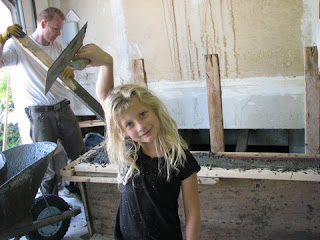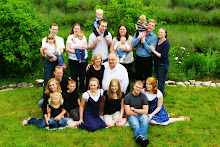It's one thing to know intellectually that your family should have a plan for emergencies...things like earthquakes, hurricanes, tornadoes, snowstorms and other events out of our control. It's another thing to experience first hand one of those events. All of a sudden, the time for preparation is over and you're stuck with whatever plans you've made.
My family was living on the east coast when we were in the path of a hurricane. Sheet lumber was out of stock at building stores (because people were boarding up their windows), food was quickly off the shelves (gotta have food) and the city was on hold while everyone waited to see what would happen. Luckily, the path of the hurricane moved slightly and we only got the effects of the edge of the hurricane but it was a lesson that no book or lecture could teach us. Too bad it often takes an actual emergency to see if you're prepared or not.
It's not possible to foresee every possible event that could happen to your family but there are some fairly predictable events in every location. Some areas are prone to earthquakes, some to tornadoes etc. Those are things that you can (and should) prepare for. Such preparation will ease fears in the midst of chaos and confusion in the actual event of an emergency.
Last night we listened as a storm raged outside, the wind whipped the trees and the rain pounded the roof. About 7 pm, the lights flickered and then everything went dark. No power. We got out the lanterns and curled up on the couch under warm blankets, not knowing how long it would be before power was restored. We had water stored and plenty of food. The outage lasted only 2 hours but was a tiny reminder of times when we were out of power for a week, due to storms.
I look at these occasional power outages as preparation for possible emergencies in the future. Having a basic supply of food (non-perishable), water, and fuel is very comforting when the lights go out.
But I have a question...why do most power outages happen at night? :)
Valentine’s Day - Beach Style
4 days ago






















